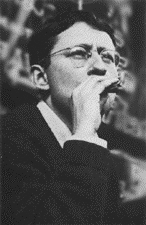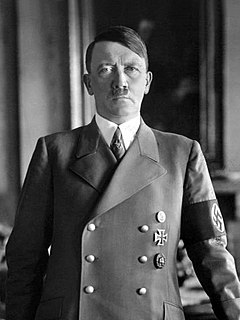 W
WAlphonse Gallaud de la Pérouse, better known as Zo d'Axa, was a French adventurer, anti-militarist, satirist, journalist, and founder of two of the most legendary French magazines, L'EnDehors and La Feuille. A descendant of the famous French navigator Jean-François de Galaup, comte de Lapérouse, he was one of the most prominent French individualist anarchists at the turn of the 20th century.
 W
WAlexander Berkman was a Russian-American anarchist and author. He was a leading member of the anarchist movement in the early 20th century, famous for both his political activism and his writing.
 W
WGuy Louis Debord was a French Marxist theorist, philosopher, filmmaker, member of the Letterist International, founder of a Letterist faction, and founding member of the Situationist International (SI). He was also briefly a member of Socialisme ou Barbarie.
 W
WFu Shanxiang was a Chinese scholar from Nanjing who became Chancellor under the Taiping Heavenly Kingdom, which was nearly successful in its attempts to overthrow the Qing dynasty in the 1850s. Fu is known as the first female Zhuangyuan in Chinese history.
 W
WHinton Rowan Helper was an American Southern critic of slavery during the 1850s. In 1857, he published a book which he dedicated to the "nonslaveholding whites" of the South. The Impending Crisis of the South, written partly in North Carolina but published when the author was in the North, argued that slavery hurt the economic prospects of non-slaveholders, and was an impediment to the growth of the entire region of the South. Anger over his book due to the belief he was acting as an agent of the North attempting to split Southerners along class lines led to Southern denunciations of 'Helperism'.
 W
WAdolf Hitler was a German politician and leader of the Nazi Party. He rose to power as the chancellor of Germany in 1933 and then as Führer in 1934. During his dictatorship from 1933 to 1945, he initiated World War II in Europe by invading Poland on 1 September 1939. He was closely involved in military operations throughout the war and was central to the perpetration of the Holocaust.
 W
WAbbot Howard Hoffman, better known as Abbie Hoffman, was an American political and social activist who co-founded the Youth International Party ("Yippies"). He was also a leading proponent of the Flower Power movement.
 W
WMaurice Joly (1829–1878) was a French publicist and lawyer known for his political satire titled Dialogue aux enfers entre Machiavel et Montesquieu ou la politique de Machiavel au XIXe siècle, that attacked the regime of Napoleon III. Available English translations include: Dialogues in Hell between Machiavelli and Montesquieu by Herman Bernstein, and The Dialogue in Hell Between Machiavelli and Montesquieu by John S. Waggoner.
 W
WPaul Lafargue was a French revolutionary Marxist socialist journalist, literary critic, political writer and activist; he was Karl Marx's son-in-law having married his second daughter, Laura. His best known work is The Right to Be Lazy. Born in Cuba to French and Creole parents, Lafargue spent most of his life in France, with periods in England and Spain. At the age of 69, he and 66-year-old Laura died together by a suicide pact.
 W
WAaron Samuel Liebermann, also known by his pen names Bar Drora and Daniel Ish Ḥamudot and later as Arthur Freeman, was a socialist author, Hebrew translator, and political essayist. A pioneer of Jewish socialism and the Jewish labour movement, he was described by Rudolf Rocker and Ber Borochov as the "father of Jewish socialism".
 W
WMary Edna Tobias Marcy was an American socialist author, pamphleteer, poet, and magazine editor. She is best remembered for her muckraking series of magazine articles on the meat industry, "Letters of a Pork Packer's Stenographer," as author of a widely translated socialist propaganda pamphlet regarded as a classic of the genre, Shop Talks on Economics, and as an assistant editor of the International Socialist Review, one of the most influential American socialist magazines of the first two decades of the 20th Century.
 W
WEdmund Ruffin was a wealthy Virginia planter and slaveholder. In the last three decades before the American Civil War, his pro-slavery writings received more attention than his agricultural work. Ruffin staunchly advocated states' rights and slavery, arguing for secession years before the Civil War, and became a political activist with the so-called Fire-Eaters. Ruffin is given credit for "firing the first shot of the war" at the Battle of Fort Sumter in April 1861 and fought as a Confederate soldier despite his advanced age. When the war ended in Southern defeat in 1865, he committed suicide rather than submit to "Yankee rule."
 W
WAvram Steuerman-Rodion, born Adolf Steuerman or Steuermann and often referred to as just Rodion, was a Romanian poet, anthologist, physician and socialist journalist. A member of Romania's Jewish community, he was a lifelong militant for Jewish emancipation and assimilation, noted for poems which attack the prevailing antisemitism of his day. For a while, he was active as a propagandist of Hovevei Zion ideas among local Jews.